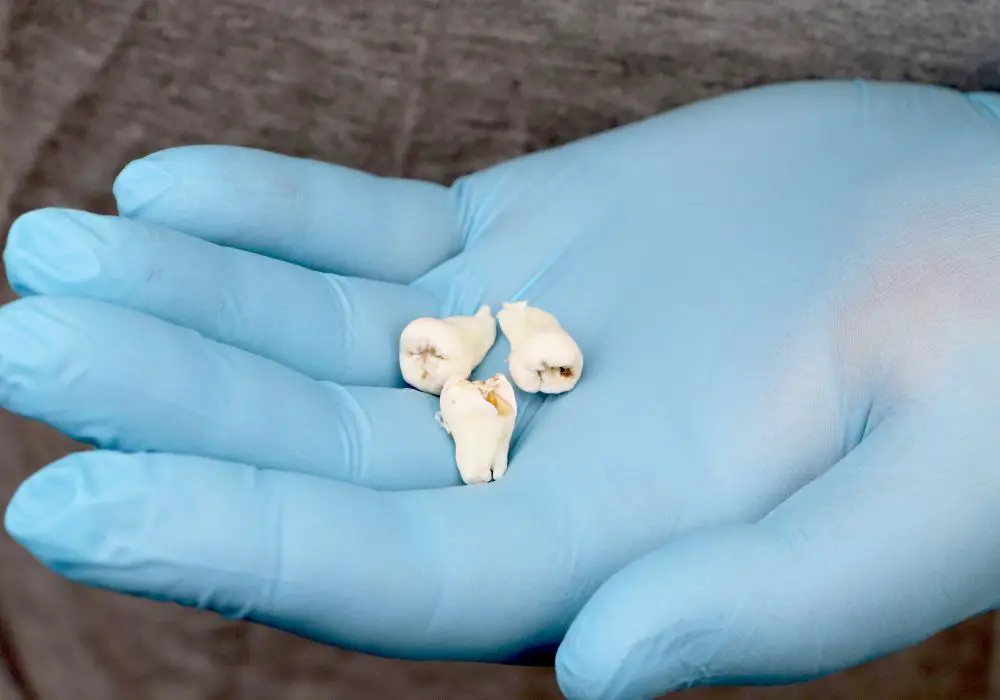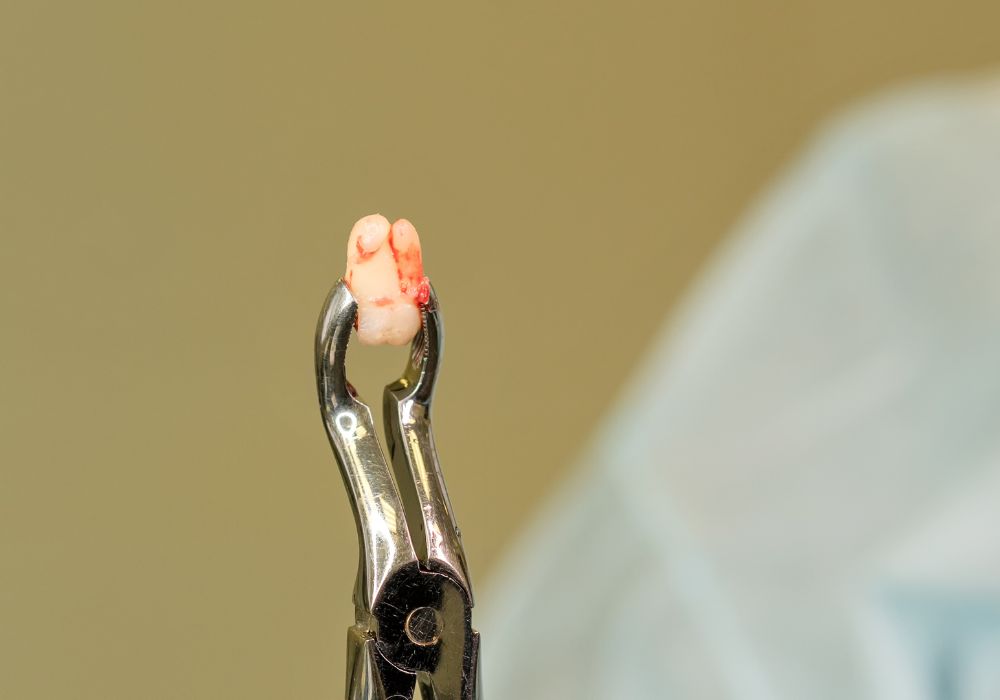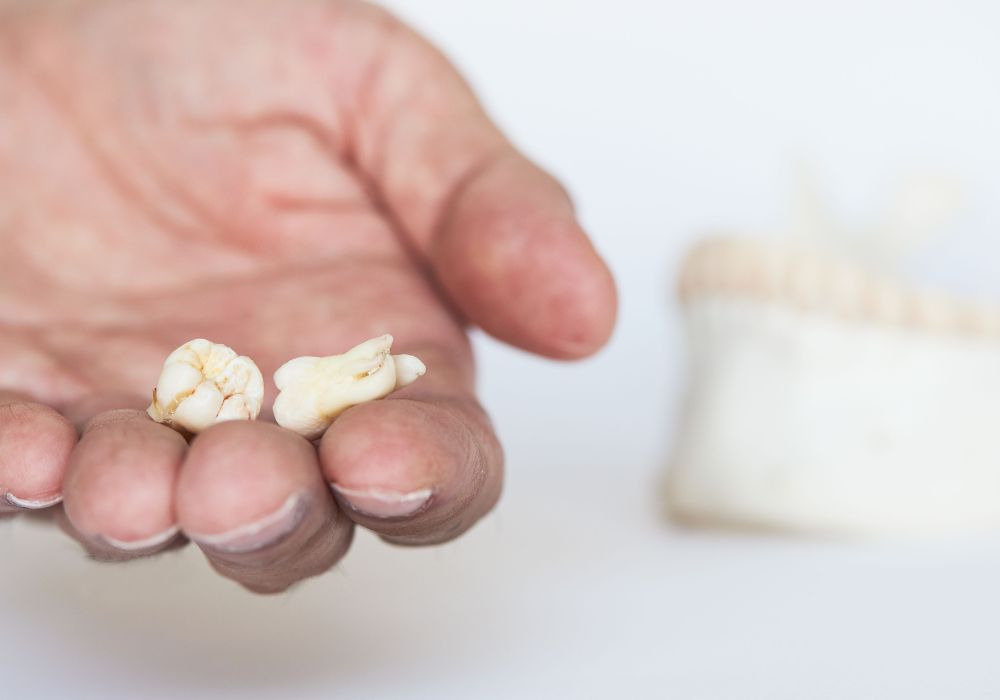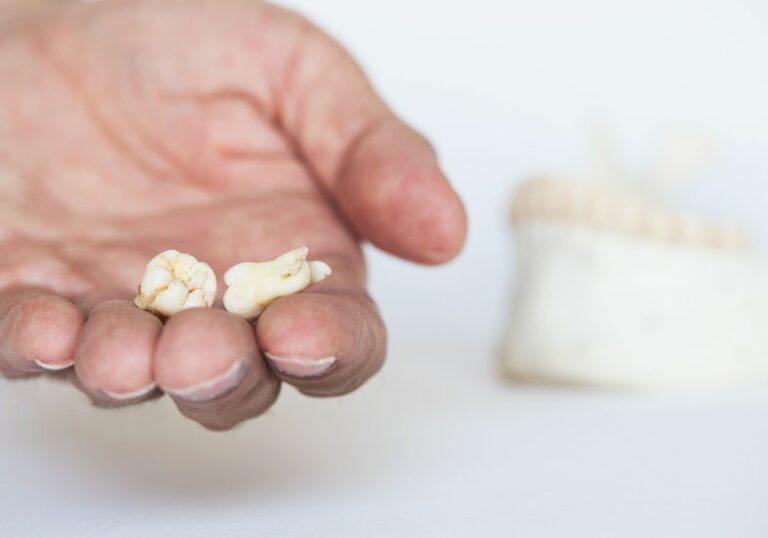Wisdom teeth extraction is a common procedure that many young adults go through. Often the question arises – can I keep my extracted wisdom teeth? There are important reasons why dentists do not allow patients to keep their pulled wisdom teeth. This article will provide an in-depth explanation.
We’ll examine the issues around infection control, medical ethics, and legal liability that prevent dentists from releasing extracted human tissue. You’ll also learn about the surgical process and postoperative recovery time after wisdom teeth removal.
Finally, we’ll look at some options if you really want to keep your teeth for sentimental reasons.
Detailed Reasons You Cannot Keep Extracted Wisdom Teeth

Dentists and oral surgeons have a legal and ethical obligation to properly dispose of any tissue, blood or teeth removed from your body during treatment. Here’s a more extensive look at why wisdom teeth extraction protocols prohibit keeping your pulled teeth:
Legal Health and Safety Regulations
Extracted teeth are considered medical waste products that could transmit infection. Rules for medical waste disposal are governed by agencies like the EPA and FDA at the federal level.
At the state level, health departments and dental boards establish strict regulations around the handling and disposal of biological materials removed from patients. Oral surgery offices have to adhere to rigorous infection control programs.
These bodies outline how to identify, separate, store, transport, track, and finally destroy biological waste. Failing to follow protocols can result in fines or loss of dental licenses.
To stay compliant with healthcare laws, dentists cannot allow patients to keep extracted teeth which would subvert hazardous waste disposal regulated under law.
Ethical Obligation to Avoid Harm
Healthcare professionals have an ethical duty to ‘do no harm’ under the Hippocratic oath. Allowing patients to keep extracted teeth could directly harm them if an infection developed.
Dentists must weigh ethical obligations to the patient versus their request. In the case of wisdom teeth, preventing medical harm outweighs sentimental interest in keeping the teeth.
Proper disposal also protects the wider community. Biohazard materials can’t be allowed to transmit communicable diseases. So while denying teeth seems inconvenient to the individual patient, it ultimately benefits the patient and public health.
Infection Hazards from Surgery
Wisdom teeth require oral surgery with anesthesia to remove impacted teeth. This poses significant bleeding and infection risks, especially with the mouth’s abundance of bacteria.
The tooth socket and surrounding gum tissue are essentially open wounds after surgery. There may also be small jaw bone fragments.
These blood-soaked teeth and tissues can harbor viruses like HIV, Hepatitis B, herpes, and HPV. Bacteria including staph, strep, tetanus, and syphilis also pose dangers. No sterilization procedure in a typical dental office would kill all these pathogens.
Releasing contaminated teeth directly to patients could clearly transmit disease. Just handing teeth to patients to take home poses cross-contamination issues as well.
Medico-legal Analysis
Forensic odontology is the study of teeth for legal evidence. Wisdom teeth may be analyzed after criminal investigations, disasters or accidents.
Tooth samples can reveal facts like the deceased person’s age, ancestry, and diet. These clues become critical in identifying unknown victims.
For accurate forensic analysis, teeth need to undergo proper retrieval, cleaning, categorization, and storage by labs. Allowing random patients to keep teeth could disturb important legal processes.
Dentists are obligated to provide teeth to law enforcement and legal professionals when warranted rather than directly returning teeth to patients.
Why Do Patients Want Wisdom Teeth?

Despite the hazards, some patients still seek to keep their extracted wisdom teeth. Here are 5 main reasons:
1. Unique Shape
Wisdom teeth can form in unusual shapes like extra cusps or hooked projections. People want to save these oddities as a keepsake.
2. Sentimental Value
Having wisdom teeth out marks a milestone in transitioning to adulthood. Patients assign sentimental meaning to the teeth as a souvenir of this memory.
3. Artistic Interest
The shapes of teeth inspire some artists and jewelry makers who want to incorporate them into their work. Of course, using unsterilized human teeth would pose risks.
4. Monetary Gain
A black market exists where people try to sell extracted teeth from celebrities online. However, buying or selling human tissue is unethical and illegal.
5. Curiosity
Some patients are simply curious about seeing and handling teeth that came from their own bodies. However, infection control takes priority over curiosity.
While understandable, these reasons aren’t compelling enough to hand over unsterilized medical waste products for safety and biohazard reasons.
Options If You Want to Keep Your Extracted Teeth
Here are a few options if you are set on retaining your wisdom teeth:
- Request sterilization – Ask your oral surgeon to fully sterilize the teeth through autoclaving or chemical disinfection before releasing them to you. This may involve a waiver.
- Private pathology analysis – See if the surgeon will allow a private lab to do tooth analysis before giving them to you. You would cover costs.
- Take pictures pre-procedure – Photograph your impacted wisdom teeth prior to extraction surgery so you have a visual memory.
- Purchase replicas – Buy realistic artificial resin teeth online for craft projects. These avoid the hazards of real human teeth.
- Get legally obtained specimens – Some educational companies legally sell sterilized teeth or skulls for academic study if authenticity matters. Verify the source.
- Focus on post-op recovery – Shift your energy to following post-op care instructions so your mouth heals quickly after extraction.
If your oral surgeon denies your request to keep the real teeth, accept their decision graciously. Your health and safety takes precedence.
Details of Wisdom Tooth Extraction Surgery

To appreciate why extracted teeth are medical hazards, it helps to understand the invasive nature of removing impacted wisdom teeth:
Preparing for Surgery
- Your dentist will diagnose impacted teeth through x-rays and refer you to an oral surgeon.
- The surgeon will evaluate the position of the impacted wisdom teeth and degree of difficulty for extraction.
- They determine appropriate anesthesia – local novocaine shots, nitrous oxide gas, IV sedation or general anesthesia.
- If sedation is used, fasting from food and drink for 6-8 hours pre-procedure is required.
Wisdom Tooth Surgery
- The gum tissue over the impacted tooth is cut open and folded back to expose the tooth.
- Bur tools drill into the jaw bone surrounding the tooth to free it from bone.
- The tooth is either extracted in whole or broken up into fragments for removal if severely impacted.
- The surgeon irrigates the socket with saline and uses gauze to control bleeding.
- Stitches suture the gum tissue back over the extraction site.
Post Extraction Healing
- Gauze pads applied to the surgery site will be saturated with blood.
- Patients feel pain and see extensive swelling and bruising that can last weeks.
- Oral hygiene is restricted for 24 hours – no brushing, rinsing or spitting to allow blood clotting.
- A liquid and soft food diet is prescribed for 1-2 weeks until healed.
- Stitches dissolve within 7-10 days.
- Healing can take 6 weeks until gum tissue re-grows fully over the socket.
As you can see, the mouth is inherently filled with bacteria that get into the blood from extraction sites. Wisdom tooth surgery clearly warrants strict biohazard protocols.
Wisdom Teeth Removal FAQs
Here are some frequently asked questions about wisdom teeth extractions:
Can I keep my wisdom teeth after they are extracted?
No, patients cannot keep their extracted wisdom teeth. As medical waste, they must be discarded properly by oral surgeons.
What if I sign a waiver to keep my wisdom teeth?
Waivers that aim to release dentists from liability pose ethical issues and may not override hazardous waste regulations.
Where do they discard extracted teeth?
Extracted teeth are incinerated or sterilized at regulated biomedical waste disposal facilities.
Can I buy synthetic wisdom teeth online?
Yes, you can buy resin or other artificial teeth from prop supply companies to use for decorative crafts.
Is it possible to get wisdom teeth back after pathology testing?
Requesting teeth back after pathology testing is unlikely but you can inquire if sterilization is possible after their analysis.
Conclusion
In closing, retaining your extracted wisdom teeth is rarely possible due to health risks and strict waste disposal laws governing the healthcare system. While disappointing if you had your heart set on keeping them, you can take comfort knowing these protocols exist for the safety and benefit of all patients. Consider ordering synthetic teeth as an alternative memento of your rite of passage into dental adulthood.






